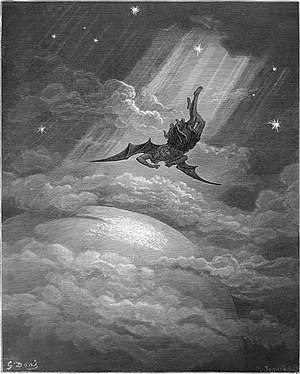I'm told the Devil is/was an angel. I'm confused, where did people "get" this knowledge?
Even if one was to believe in the bible. Where in the bible does it mention anything about the devil and what he is? (Besides the obvious references to him being responsible for sin. And him being the "snake" that tempted others.)
Great question. I have Bible software on my PC which has a word lookup feature so I can look up a word or phrase and see everywhere it appears in the Bible. I looked up "Lucifer" and it came up one time. Here's what it said:
Isaiah 14:12-18
12 How art thou fallen from heaven, O Lucifer, son of the morning! how art thou cut down to the ground, which didst weaken the nations!
13 For thou hast said in thine heart, I will ascend into heaven, I will exalt my throne above the stars of God: I will sit also upon the mount of the congregation, in the sides of the north:
14 I will ascend above the heights of the clouds; I will be like the most High.
15 Yet thou shalt be brought down to hell, to the sides of the pit.
16 They that see thee shall narrowly look upon thee, and consider thee, saying, Is this the man that made the earth to tremble, that did shake kingdoms;
17 That made the world as a wilderness, and destroyed the cities thereof; that opened not the house of his prisoners?
18 All the kings of the nations, even all of them, lie in glory, every one in his own house.
I'm not saying I believe in the Bible, because to me it is very questionable.
Also, my software has commentary on verses. The commentaries state that "Lucifer" in the verses above has nothing to do with Satan. It is about the King of Babylon who thought he could attain power similiar to God, but ended up falling.
So to answer your question, I have no idea how the pre-Satan Lucifer theory came about. Seemingly not from the Bible.

